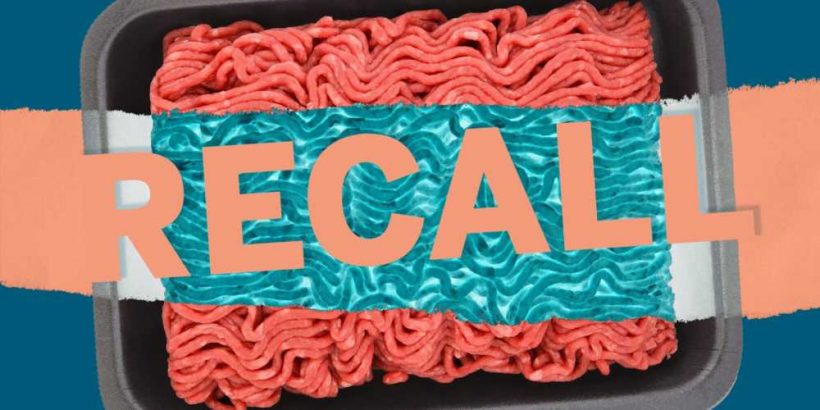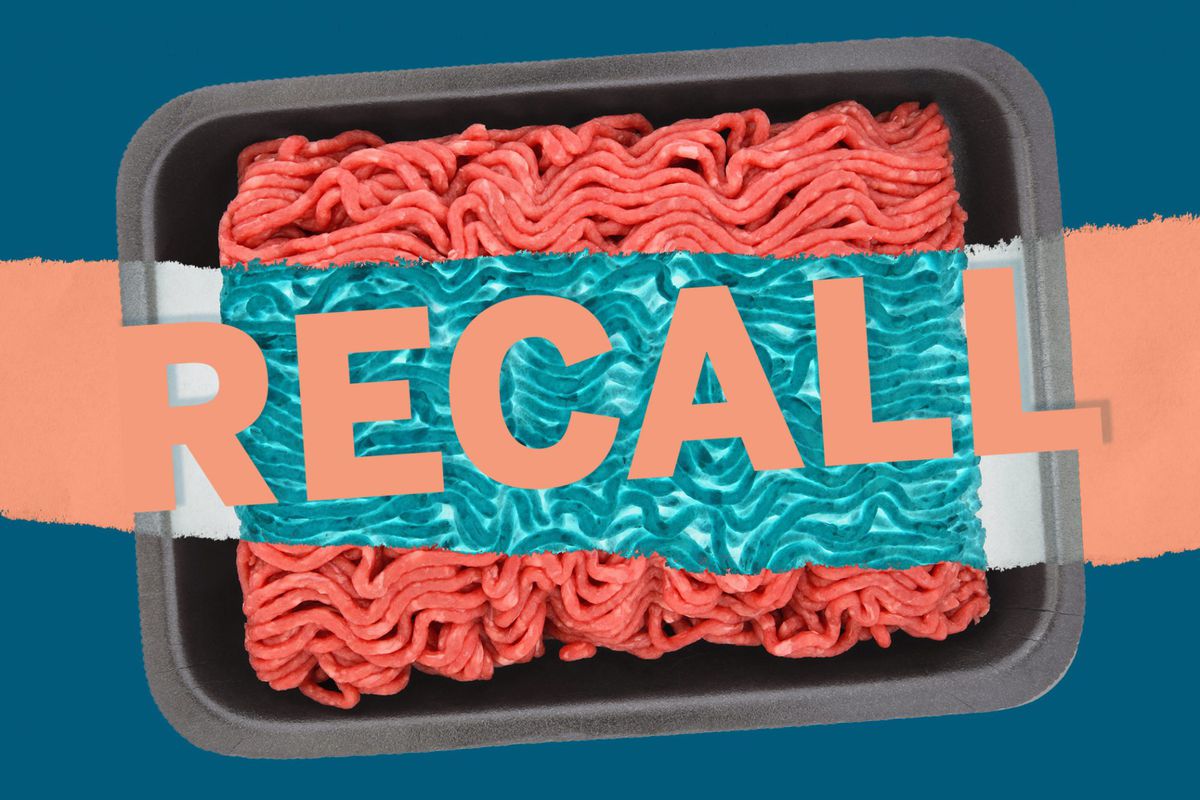It's a good idea to check that ground beef that's hanging out in your fridge or freezer: The US Department of Agriculture's Food Safety and Inspection Service announced a recall yesterday on 28,356 pounds of ground beef. That's because the beef may be contaminated with E. coli O157:H7, a strain of the bacterium Escherichia coli that can lead to serious illness.
Interstate Meat Dist. Inc.—the company issuing the recall—produced the impacted raw, ground beef on December 20, 2021. The items were then shipped to retailers in Arizona, California, Nevada, Oregon, Utah, Washington, and Wyoming. The 11 impacted items are certain 1- and 3-pound chubs of ground beef from WinCo, Wal-Mart, Kroger, and Albertsons. You can see a full list of impacted products—and pictures of the product labels—online.
The recalled items have an establishment number of "EST. 965." That number can be found either inside the USDA mark of inspection or next to the time stamp and use or freeze by date. All of the recalled products also have a use/freeze by date of January 11, 2022.
If you have any of the affected products, the USDA is urging that you don't eat them. Instead, you should throw them away or return them to the place of purchase.
The issue was reported to the USDA after someone bought the ground beef and submitted it to a third-party lab for analysis. Because the sample tested positive for E. coli O157:H7, the USDA did its own assessment and found that the test results were accurate.
Infection from E. coli O157:H7 can be a big deal. People who eat contaminated products can develop the following symptoms, according to the Centers for Disease Control and Prevention:
- Severe stomach cramps
- Diarrhea (that's usually bloody)
- Vomiting
Some people also develop a fever. While most people get better within five to seven days, some people can develop severe or life-threatening infections. That can include a type of kidney failure called hemolytic uremic syndrome (HUS), which causes easy bruising, pallor (aka, an unusually pale appearance), and decreased urine output. People who develop these symptoms should get emergency medical care ASAP, the USDA says.
"The most vulnerable population includes the very young, elderly, pregnant women, and those with weakened immune systems," Darin Detwiler, associate professor of food safety at Northeastern University, tells Health. "However, people of all ages and health status can be severely affected."
How does E.coli get into ground beef in the first place? "E.coli is found in cows' large intestines, and the bacteria is shed through their feces," Candice Christian, consumer and retail food safety expert at North Carolina State University, tells Health. "Sometimes in slaughterhouses, the meat can be cross-contaminated with manure."
E.coli O157:H7 is killed off when temperatures reach 160 degrees Fahrenheit, Christian says, but it's really best to play it safe and toss or return a product that's been recalled over contamination concerns.
If you happen to get sick and you suspect it's due to E.coli, Detwiler recommends doing the following:
- Hydrate well and replace electrolytes with drinks like Gatorade or Pedialyte.
- Don't take anti-diarrheal medications. "They can lengthen the duration of infection and may also increase the risk of HUS," Detwiler says.
- Don't take antibiotics. This has been linked to a higher risk of developing severe disease.
- Protect other family members from person-to-person transmission by washing your hands well after using the bathroom or changing diapers and avoiding preparing foods for others. "Person-to-person transmission is a common cause of infection for young children," Detwiler says. "This is how my son became sick and ultimately died in 1993."
If your symptoms aren't improving after several days or seem to be getting worse, call your doctor.
Source: Read Full Article


